
Early in the spring of 1774, a solitary figure rides westward over Kane’s Gap into Powell’s Valley, far beyond the fragile line of frontier settlements to the east. Daniel Boone, his hair plaited and clubbed up in Indian fashion, garbed in black-dyed deerskin, has come in search of the rude grave of his eldest son. James Boone and six companions had been slaughtered by Delaware, Shawnee and Cherokee Indians in October 1773 while hurrying forward with pack animals to rejoin Boone’s party of Kentucky-bound emigrants. James had called pitifully for his family in his death agony as a Cherokee called Big Jim delighted in torturing him. The massacre had momentarily ended Boone’s dream of a settlement in Kentucky.
The life of his eldest son is to be but one of a tragic string of blood payments that Daniel Boone will make to open the American West. In time he will come to be heralded as an American Moses leading his people to their Western promised land. His personal travail will be embraced by writers, artists, poets and filmmakers across the generations to create an epic that becomes the grand creation myth for the founding of a pioneer nation. Unlike the aristocratic Founding Fathers to the east, however, Boone remains the hero of the common people.
The Call of the Wild
Born in Berk’s County, Pennsylvania, on November 2, 1734, Daniel was the sixth of Squire and Sarah Boone’s 11 children. His Quaker grandfather had come to Penn’s colony in 1713 in search of religious freedom. But Squire Boone, angered when chastised by the Exeter Meeting of Friends for allowing two of his children to marry outside the church, left the faith and the colony, taking his family to North Carolina and settling his brood on the Yadkin River. Young Daniel, profoundly affected by his father’s religious troubles, always professed to be a Christian but never again belonged to any sect or church.
Esta historia es de la edición December 2020 de True West.
Comience su prueba gratuita de Magzter GOLD de 7 días para acceder a miles de historias premium seleccionadas y a más de 9,000 revistas y periódicos.
Ya eres suscriptor ? Conectar
Esta historia es de la edición December 2020 de True West.
Comience su prueba gratuita de Magzter GOLD de 7 días para acceder a miles de historias premium seleccionadas y a más de 9,000 revistas y periódicos.
Ya eres suscriptor? Conectar
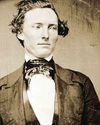
FIREARMS COLT WALKER 47
THE LEGENDARY HANDGUN THAT REALLY WON THE WEST
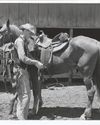
HERITAGE TRAVE
THE AMERICAN WEST IN ALL ITS GLORY OUR ANNUAL FAVORITES LIST CELEBRATES DESTINATIONS ACROSS THE WESTERN UNITED STATES.
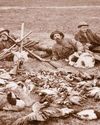
Wild Turkey, and Not the Drinkin' Kind
The actual bird was a favorite of pioneers.
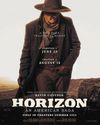
THE PASSION PROJECTS OF THE MODERN WESTERN
A YEAR OF UNDERRATED EXCELLENCE
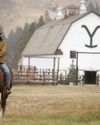
WESTERN BOOKS THEN AND NOW
THE STATE OF WESTERN HISTORY AND FICTION PUBLISHING IN 2024 IS ONE OF GRIT AND DETERMINATION.
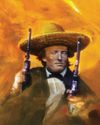
SAMUEL WALKER VALIANT WARRIOR
While a prisoner at the castle of Perote, Walker was put to work raising a flagpole. At the bottom of the hole, Walker placed a Yankee dime, vowing to someday come back and retrieve it, at the same time exacting revenge on his Mexican captors. In the summer of 1847, when Walker's mounted riflemen returned and routed Santa Anna's guerillas, the young captain kept his promise and got his dime back.
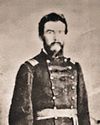
THE BATTLE OF CENTRALIA
ON September 27, 1864, Bloody Bill Anderson and about 80 men took over the small railroad village of Centralia, looting stores and discovering a barrel of whiskey that they hauled out into the street. Wild enough when sober, they soon were roaring drunk.
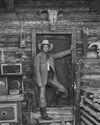
THE MAN WHO SHOOTS THE WEST
Jay Dusard is a living American photographer who has made Arizona his home for over 60 years, seeing it first in 1960 on a visit, moving here for good in 1963.
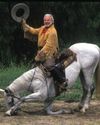
A TRUE WESTERNER INDEED PHIL SPANGENBERGER 1940-2024
Spangenberger had Nevada trained to bow by the legendary horse trainer, Glenn Randall, who trained Roy Rogers' Trigger, Gene Autry's Champion, Rex Allen's Koko and the Ben Hur chariot horses, among other great equines.

Where Did the Loot Go? - This is one of those find the money stories. And it's one that has attracted treasure hunters for more than 150 years.
Whatever happened to the $97,000 from the Reno Gang's last heist? Up to a dozen members of the Reno Gang stopped a Jeffersonville, Madison and Indianapolis train at a watering station in southern Indiana. The outlaws had prior intelligence about its main load: express car safes held about $97,000 in government bonds and notes. In the process of the job, one of the crew was killed and two others hurt. The gang made a clean getaway with the loot.